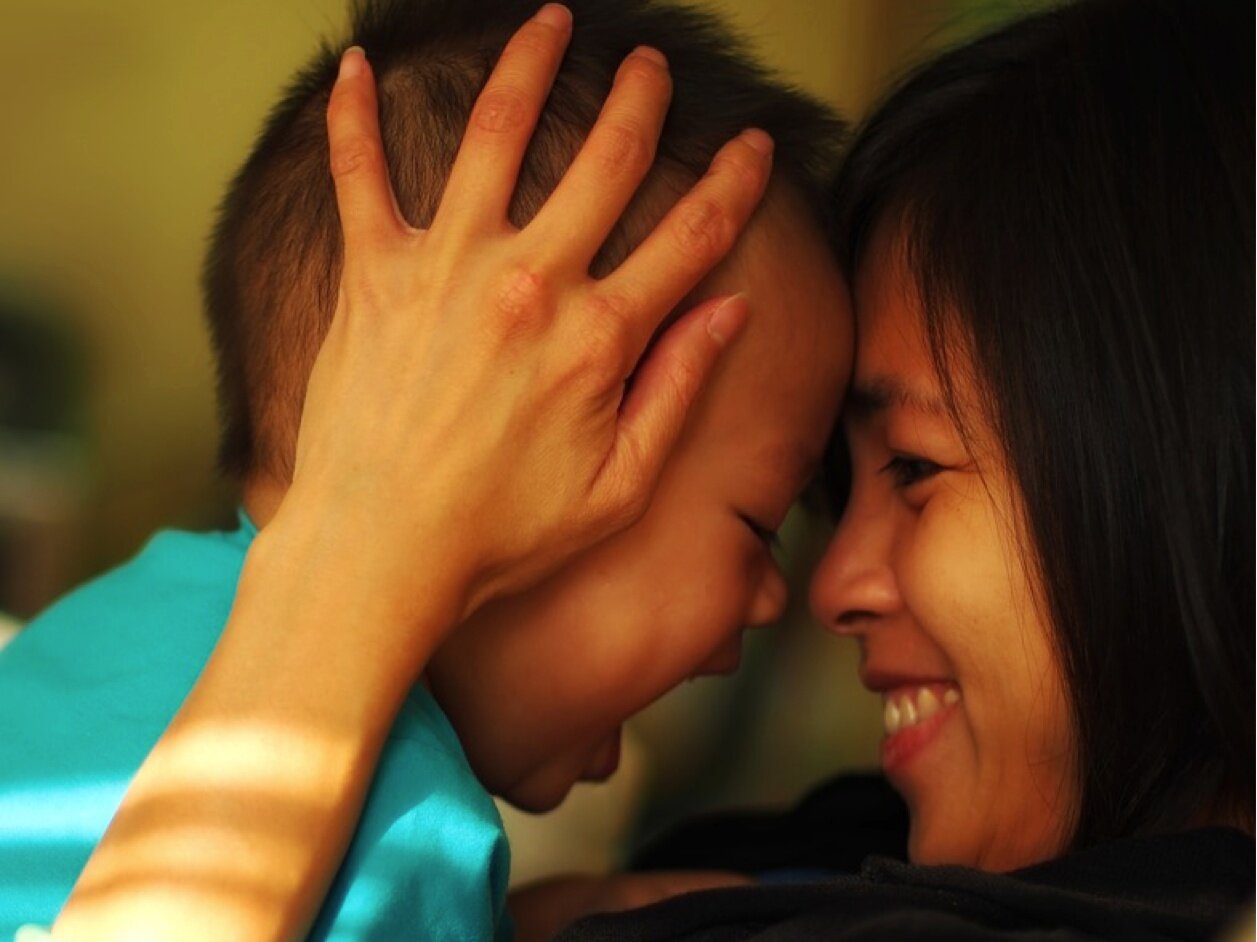The Delightful Gaze in Parenting
The Delightful Gaze of Love
Peek-a-boo. I see you! Do you remember playing this game with your child or grandchild?
Oh the delight this simple game brings to the hearts of little children!
Child development experts will tell you that young children enjoy this game so much because they have not yet achieved “object permanence.” In other words, they are pleasantly surprised to see their parents’ faces emerge anew each time from behind the two closed hands. They thought their parents had disappeared!
What about the parents? Why do they enjoy this game so much? They are enjoying the bonding moment that takes place with their children, while basking in the mirrored gaze of delight and joy in their children’s eyes.
Attachment is the bonding process that God ordained for humans so that we would be connected to our children, ensuring their growth and survival. This attachment bond is shaped through face to face gazing, tender touch, and consistent emotional responses to the children’s needs.
Children are soothed, stimulated, and strengthened through this bonding. Healthy parents feel a deep sense of fulfillment, compassion, and joy in being able to co-create secure attachment bonds with their children. And, a huge part of this is shared in the delightful gaze between parent and child.
This tender gaze conveys a sense of valuing and worth. We only gaze in this manner upon people who are precious to us. I believe it lays a key portion of the foundation for a child’s self worth.
Certainly, this is clear in the reverse. Children who feel invisible and unnoticed may struggle for years with feelings of worthlessness.
Even as adults we are subject to the pains of rejection when we feel that no one cares to pay attention to us or our lives. Think of the last time you posted something to social media and got no “likes” or replies. The human nervous system does not differentiate between the pain of rejection and physical pain in the brain. This shows us how essential it is for us to be connected to loving others for our well-being and survival.
Face to face gazing also allows a parent to carefully study the emotional expressions on the face of the child. Accordingly a parent can respond quickly and accurately to meet the needs of the child. This is especially important when children are very young, totally dependent, and lacking in spoken language. The parent must rely heavily on the nonverbal cues of the child in order to stay connected and provide good care.
It’s fascinating to note that even after we acquire spoken language our nonverbal communication patterns still dominate the discourse between ourselves and others. More than 70 percent of what we convey comes through our nonverbal channels.
Children of all ages are reliant upon the information and delightful gazing they receive from us. One of my children is particularly adept at picking up on times when I am less enthused in my parent child interactions. While I can’t be enthusiastic at all times, there are key things that I can do to infuse responsiveness and delight into our interactions. There are key things that you can do to let your children and loved ones know that they are held in your gaze.
Put your cell phone down when you are with your children and loved ones. This will help you be less distracted and allow your attention to focus in the normal direction of building bonds with your family. The adrenaline surges which your brain receives from viewing your cell phone often short circuit your instinctive attachment longings for the people in front of you.
Use shame-based parenting interventions sparingly, and only for the most extreme behavior infractions. Kids are egocentric, and they have a hard time distinguishing between your displeasure in their actions vs. them as little people.
One leading Attachment Theorist, Allan Schore, conceptualizes shame as “a toddler’s response to the disappointed expectation of sparkling-eyed pleasure in the maternal gaze.” So this is a two edged sword. Shame is felt when a young child can tell that the parent has ceased delighting in them. The “sparkle” in the eye has been snuffed out. On the other hand you may use your twinkling eyes to convey immense value and delight in your loved ones.
Whenever possible, smile, twinkle, and sparkle in your gaze towards your loved ones. Is this something that you could do daily with your spouse and kids? When would be a time today that you could set aside distractions and center yourself on this all important business of loving others?
Let this verse guide you as a prayer, reminding you of how your Heavenly Father delights in you. May He guide and protect your relationships with those you hold dear.
“Keep me as the apple of your eye; hide me in the shadow of your wings.” Psalm 17:8 (ESV)

